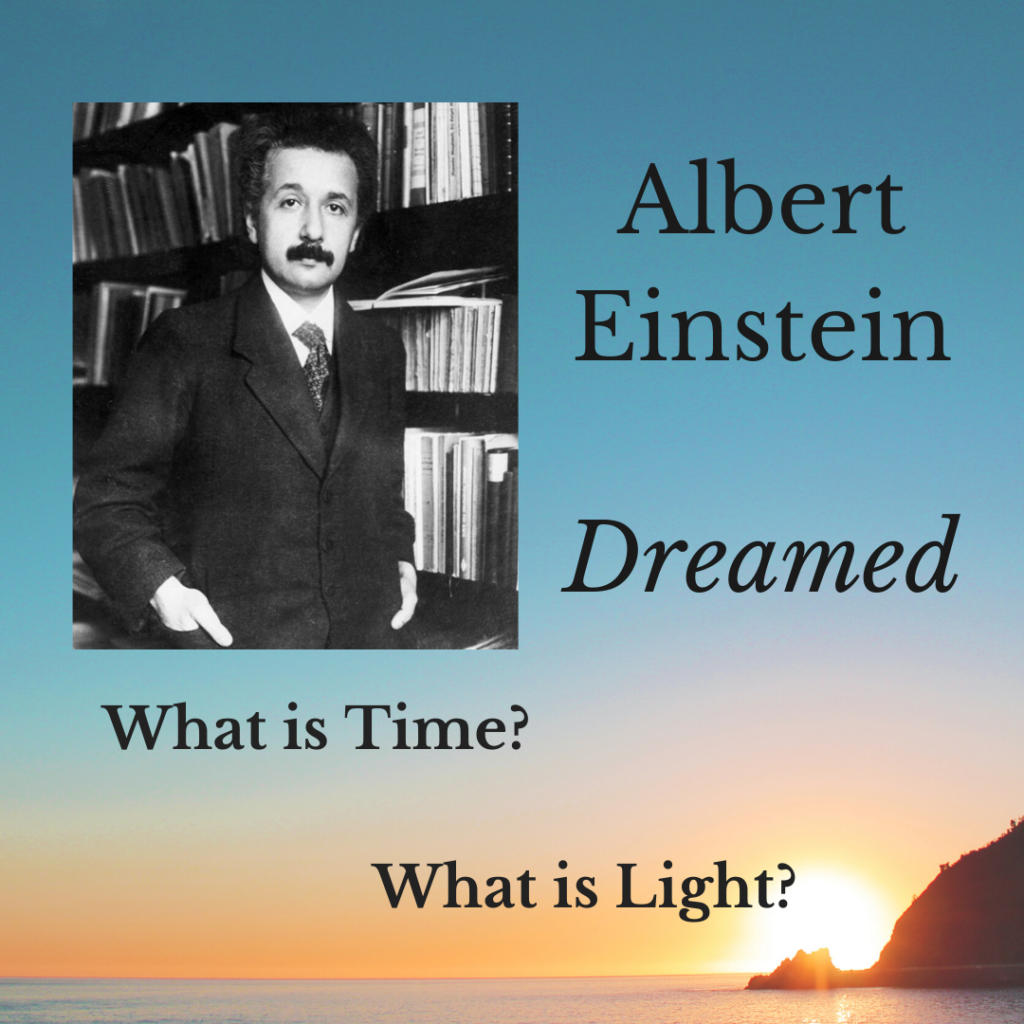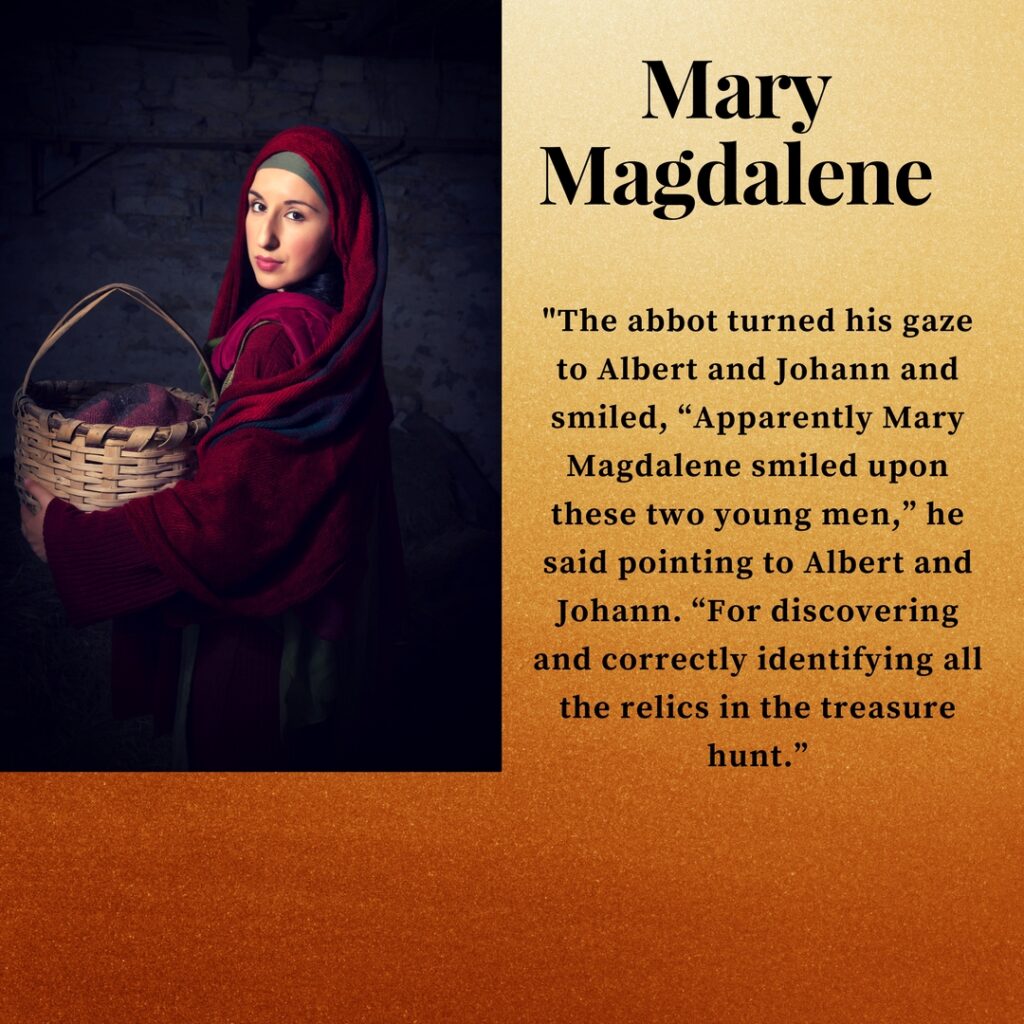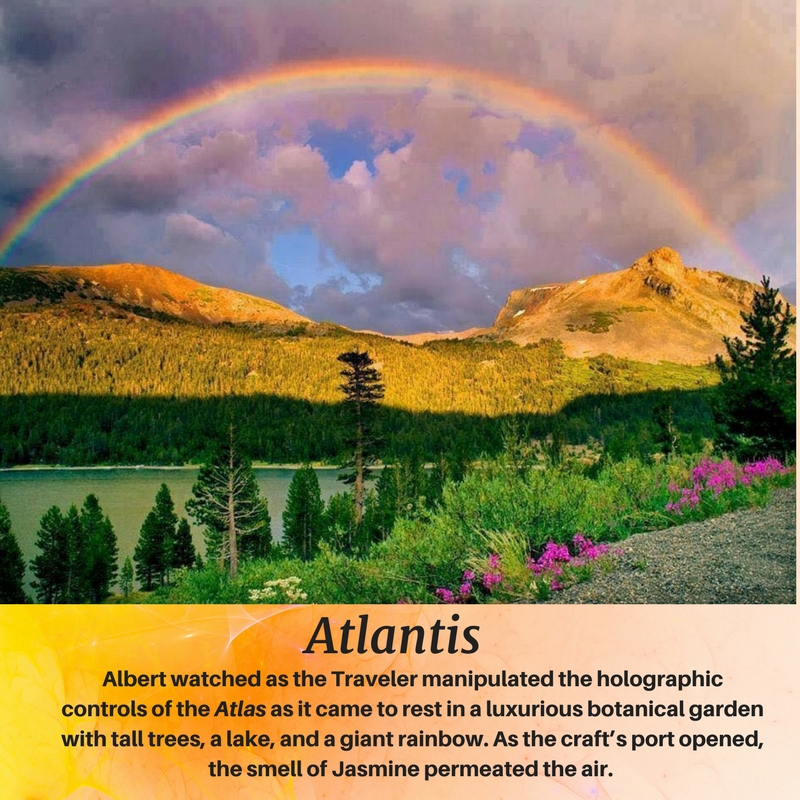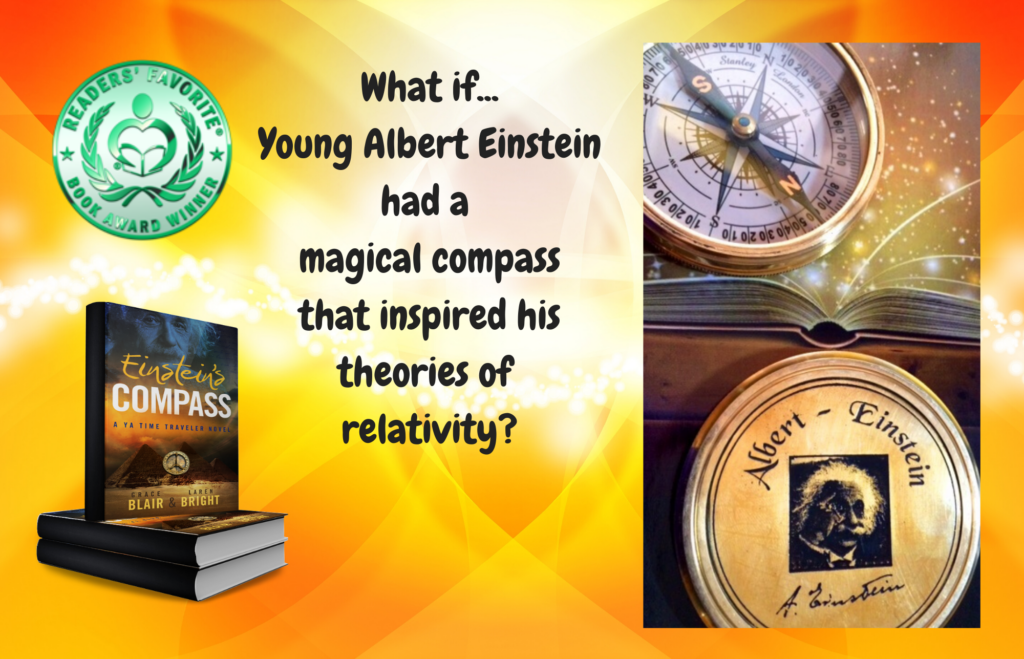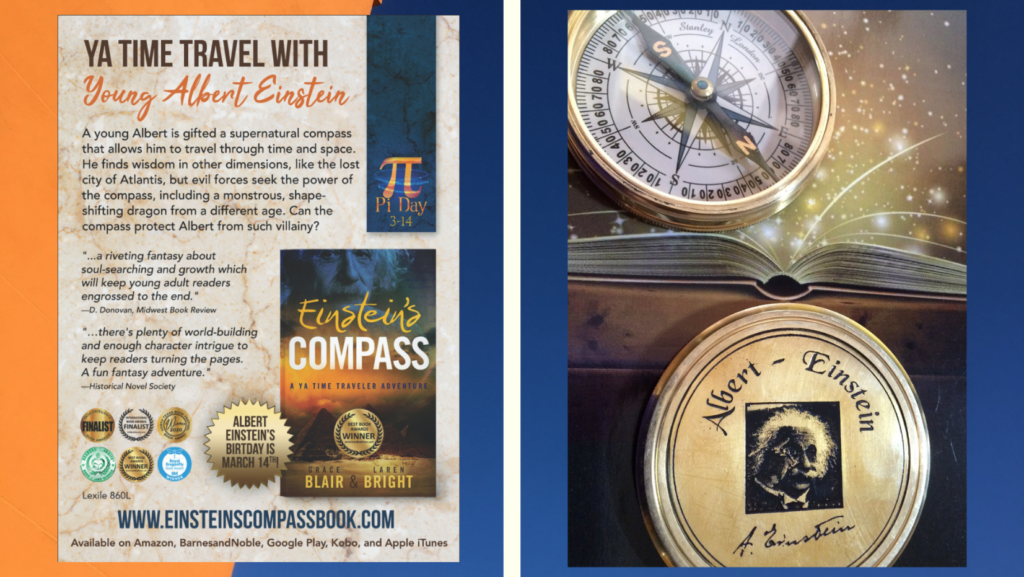
Sunday March 14th is Albert Einstein’s Birthday. On Sunday, the eBook is $.99. Einstein said, “There are only two ways to live your life. One as though nothing is a miracle. The other is as though everything is a miracle”. Did you know Einstein was not always famous? I chose him because, like me, he had struggled in youth. When he was a teenager, his parents abandoned him. A Jew, he attended a Catholic high school and experienced anti-Semitism. At the end of his academic career, his professors refused to help him with a job.
When Albert was a boy, his father gave him a compass. Looking at the compass in his tiny hand, he gazed at the needle that always pointed north and wondered how it worked. The wonder became his vision to know what time is, what is light. With all his heart, mind, and soul, he began his quest. With compass in hand, no matter stood in his way, Albert stayed the course.
My novel covers twenty years of Albert’s life. What if young Albert Einstein’s soul was from the lost continent of Atlantis? What if he had a supernatural compass that transported him back in time? What if he had a jealous twin brother in Atlantis who through a botched DNA experiment became an immortal dragon?
Spring 1885
A Gift
The sun shone brightly, melting away the remnants of the dreary days of the Munich winter. From the arbor on the front porch of the Einstein home, fragrant purple wisteria blossomed. The garden was bursting into a riot of color with red tulips, yellow roses, blue cornflowers, and a multitude of other blossoms of various hues.
Albert had been down the street at his aunt’s house. It was 1885, and the family was celebrating his cousin Benjamin’s sixth birthday. Albert had turned six the month before and was therefore far worldlier than his “little” cousin, at least to his way of thinking. But he loved his cousin—almost as much as he enjoyed his aunt’s apple strudel. In fact, he loved the pastry so much, he ran home after dessert and got sick all over the purple crocuses in his yard.
Pauline Einstein, young Albert’s twenty-six-year-old mother, noticed him struggling to climb the porch stairs. Her brow furrowed as she opened the front door. His chubby cheeks flushed, Albert looked up with a sickly gaze and grasped his mother’s hand. “Mama, I don’t feel good,” he moaned. Pauline knelt and kissed his head, then paused, frowning. “Albert, you’re burning up!”
She pulled back her long muslin skirt, then scooped the boy into her arms and carried him upstairs to his bedroom. Albert had his own room, a pleasant chamber with tiny-blue-flowered wallpaper.
Albert fussed restlessly as Mama pulled off his necktie, ignoring the smell of sour vomit on his starched white shirt.
As Albert removed his pants, Pauline moistened a cloth from the washbasin and wiped Albert’s face and hands. She dressed him in a long cotton nightshirt and tucked him under the covers. Albert fell asleep the second his head hit the goose down pillow. Mama sat in the chair next to his bed and stroked his hair. “Sleep, feel better, mein liebst.” She stayed with him through the night, wiping his brow every few minutes to cool his fever. Albert slept fitfully, unaware of his mama’s loving ministrations.
The next morning, Albert did not join the family for breakfast. Hermann, Albert’s father, frowned at the dark circles under Pauline’s eyes. “Is Albert doing better?”
Picking at her food, Pauline gave a heavy sigh and shook her head. “I’m worried. Albert has not awakened since yesterday when I put him to bed. His fever is still the same. I’m going to summon Dr. Weiss to examine him.”
Upstairs, Albert lay unconscious, his spirit hovering over his bed. Disoriented, he saw his limp body below him. What’s happening to me? He wondered. He saw a tall, brilliant-winged being at the foot of his bed. “It’s all right, Albert. I am Angel Zerachiel.” Albert, stunned, struggled to find words. He felt a soft, warm glow from the Messenger of Light. The sick boy gazed at the luminous Being and said, “What is an angel?” Angel Zerachiel replied, “Angels are spiritual beings created by God to protect and guide humans. Each angel has a specific task or job.” Albert responded, “Oh, do you have a special job too?” Zerachiel smiled, “I am an Angel of Healing. I care for children like you when they get sick.”. Albert smiled and relaxed. His new friend was going to help him feel better.
* * *
Twisting the doorknob, Pauline ushered Dr. Klaus Weiss into Albert’s room. Albert’s spirit and Angel Zerachiel watched dispassionately as Dr. Weiss pulled his spectacles from the inside pocket of his tailored wool suit, pushed them up on his nose, and bent down to inspect the feverish boy.
After a couple minutes of gently poking, prodding, and listening, the doctor straightened and beckoned to Pauline. She moved toward him with a questioning look. “Albert is working something through his body,” Dr. Weiss stated.
“Is it serious, doctor?” Pauline asked, concern coloring her voice.
The doctor smiled reassuringly. “I don’t think so. Give him willow bark for the fever.” He took out a pad, uncapped his fountain pen, and spoke aloud as he wrote instructions for Pauline. “Steep about one teaspoon of the dried herb in two cups of boiling water for ten minutes, then strain.” He opened his leather medical bag and pulled out a small tin container marked “Willow Bark.” He handed the herbal remedy to Pauline. “You can also soothe his head with lavender and chamomile water.”
Later that afternoon, Hermann came home early from work. He opened the door, which creaked slightly, and poked his head into the room. Pauline sat in the chair next to Albert’s bed, spoon-feeding her son, who was propped up on pillows and looking better, but still quite weak.
Pauline turned at the sound and smiled at her husband. “The herbs Dr. Weiss recommended broke Albert’s fever.”
Hermann shared a wink with Pauline as he walked into the room and sat on the edge of the bed. He patted Albert’s leg under the bedding. “I am so relieved to see you feeling better.” Albert raised his tiny hand to acknowledge his papa. He did not remember the angel or leaving his body.
Hermann reached inside his moleskin pants and pulled out a round, brass object on a silver chain. The twelve gems on top glistened in the morning light. He dangled the unique object in the air in front of Albert’s face.
Albert’s eyes grew wide. “What is that, Papa?”
Hermann smiled, happy to see the illness was not severe enough to dampen Albert’s curiosity. “This is a compass, Albert.” A quizzical look came over the young boy’s face. Hermann opened the brass cover to show Albert how the strange device worked.
Hermann’s eyes glowed as he pointed to a thin arrow suspended above the face of the compass. “See this arrow?” Albert nodded, his eyes focused only on the object. “It always points north. This is because the tip is magnetic; it aligns itself with the Earth’s magnetic field.” Albert nodded, looking even closer. “The compass is for navigation, to help you find your way.”
Mesmerized, Albert reached out and grasped the unique device. It felt heavy in his little hands. He twisted, turned, and gently shook it. No matter how he moved it, the needle mysteriously only pointed north. “Where did you get it, Papa?” Albert asked, still staring at the needle.
Hermann smiled. “A new customer, Count von Baden, gave it to me to pay for installing lighting in his castle. The compass has been in his family for many years.”
“He must have been reluctant to give up such a treasure, Papa,” Albert said, finally tearing his eyes away from the compass.
Hermann shrugged. “It was among a bunch of items he gave us to reduce the price for his job,” Hermann said, his eyes twinkling. “And I thought you’d find it interesting.” As Albert grinned, Hermann pointed to the cover of the object.
“See the twelve gemstones on top? This is a unique compass. Be sure and keep it safe.”
“I will, Papa!” Albert said emphatically, his eyes drawn back to the device as if the magnetic needle pulled them. The excitement of receiving the new gadget gave Albert a spurt of energy, but it soon dissipated. Despite his best effort to continue examining his beautiful compass, Albert fell asleep under his parents’ loving gaze.
Pauline reached out and touched Hermann’s hand. “What a wonderful gift for Albert. He seems even better since you gave it to him.”
Hermann smiled, pleased he could lessen his wife’s concern.
In his sleep, Albert, too, smiled as he clutched the compass to his heart.
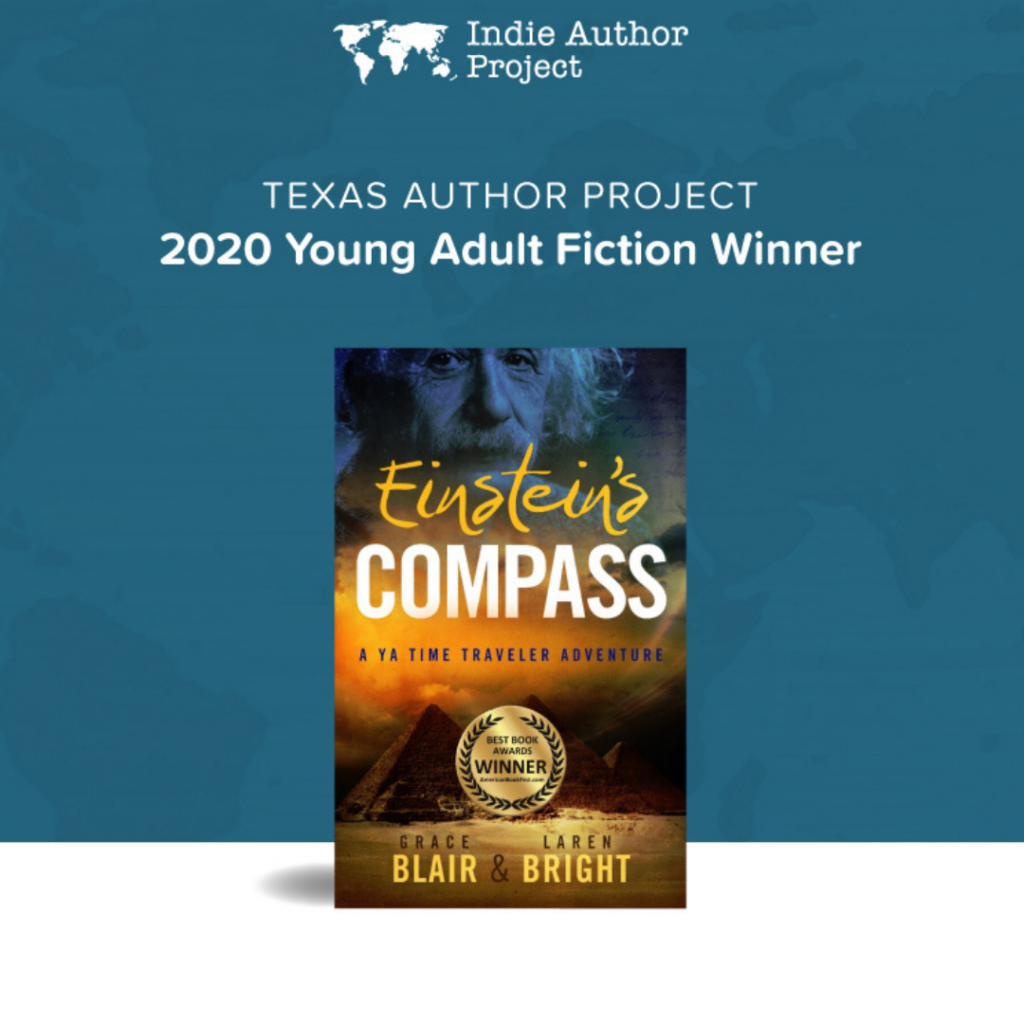
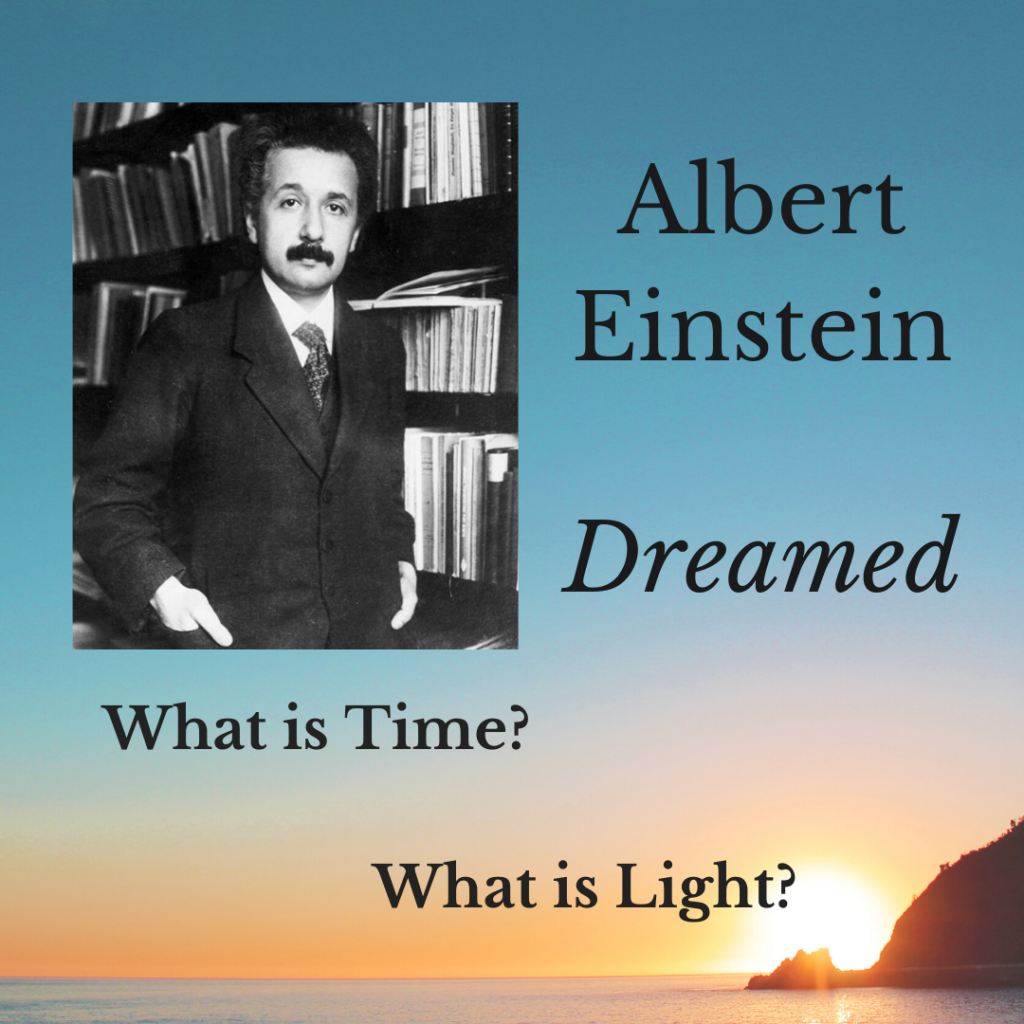
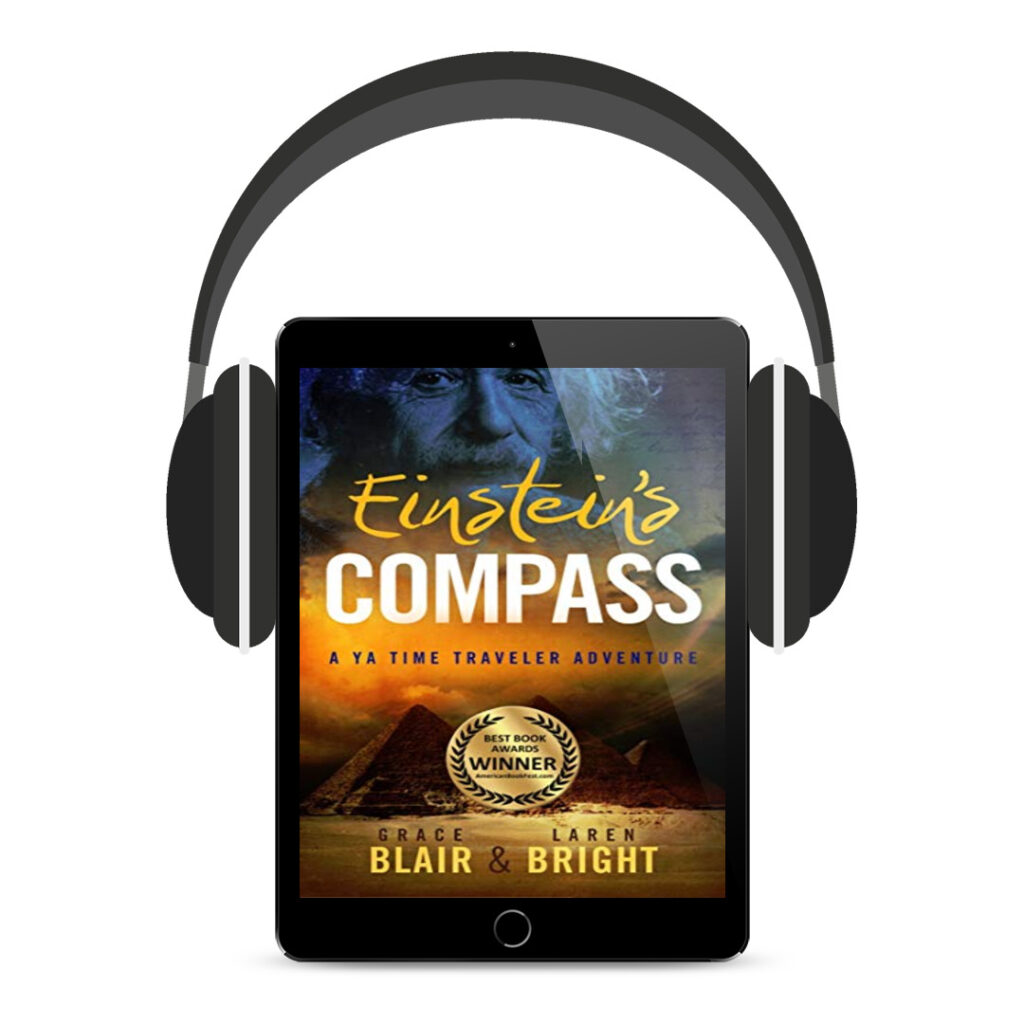
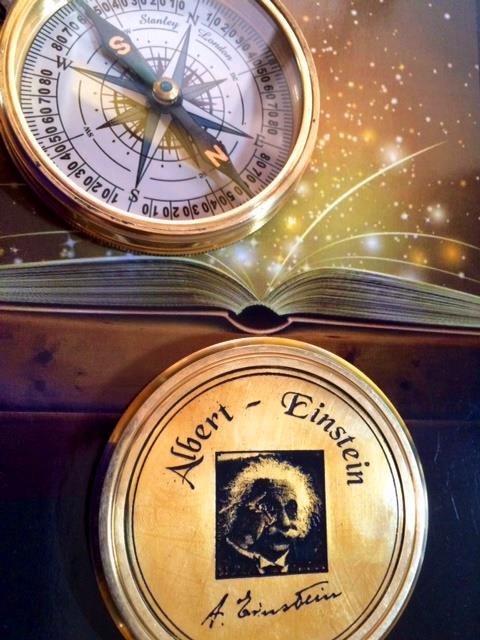
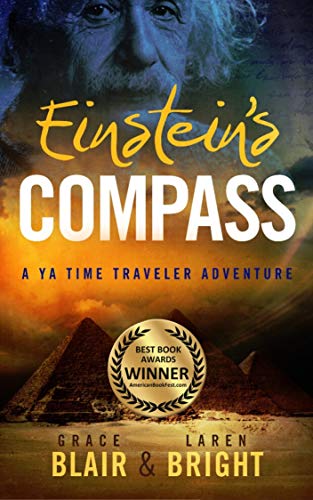 Click to Vote!
Click to Vote!